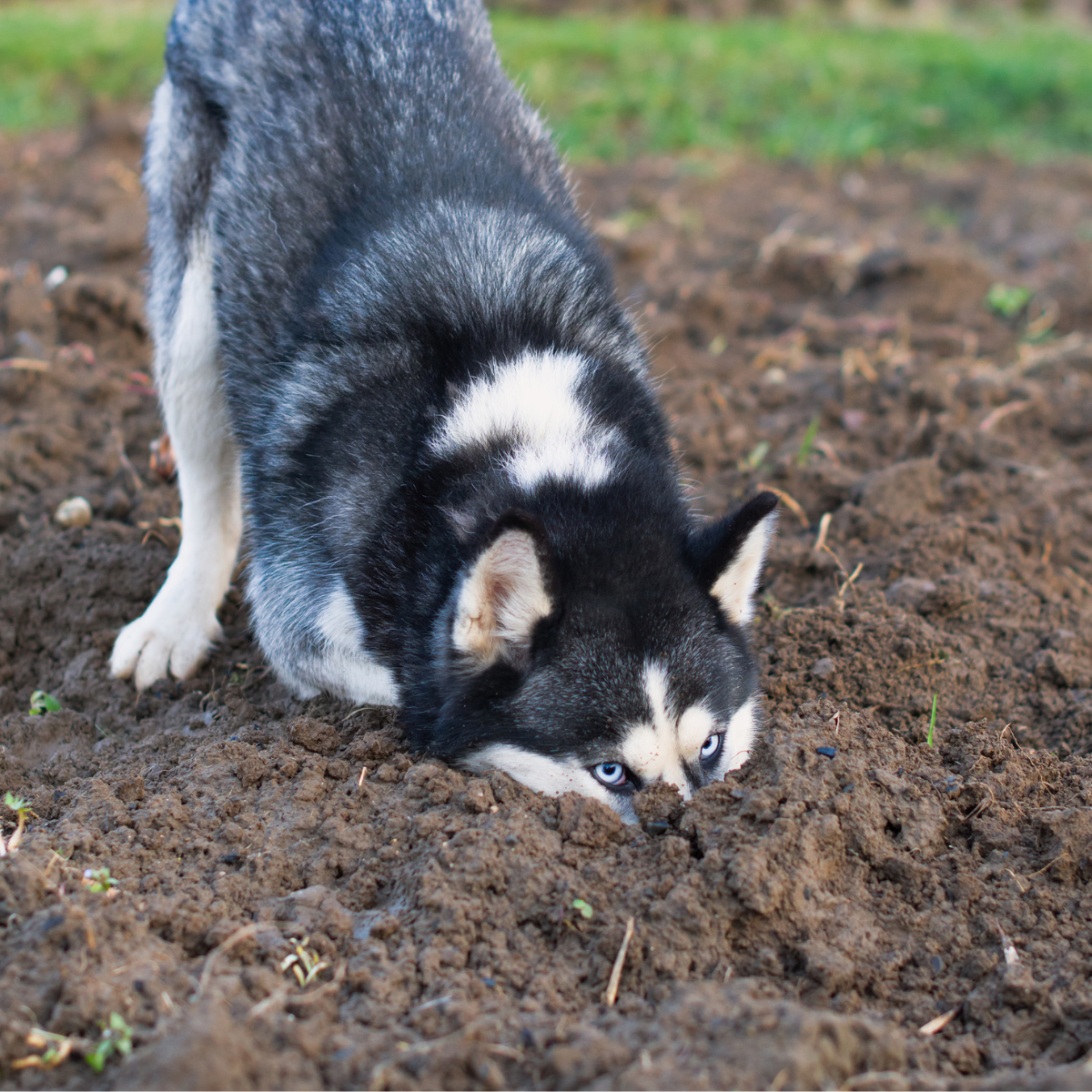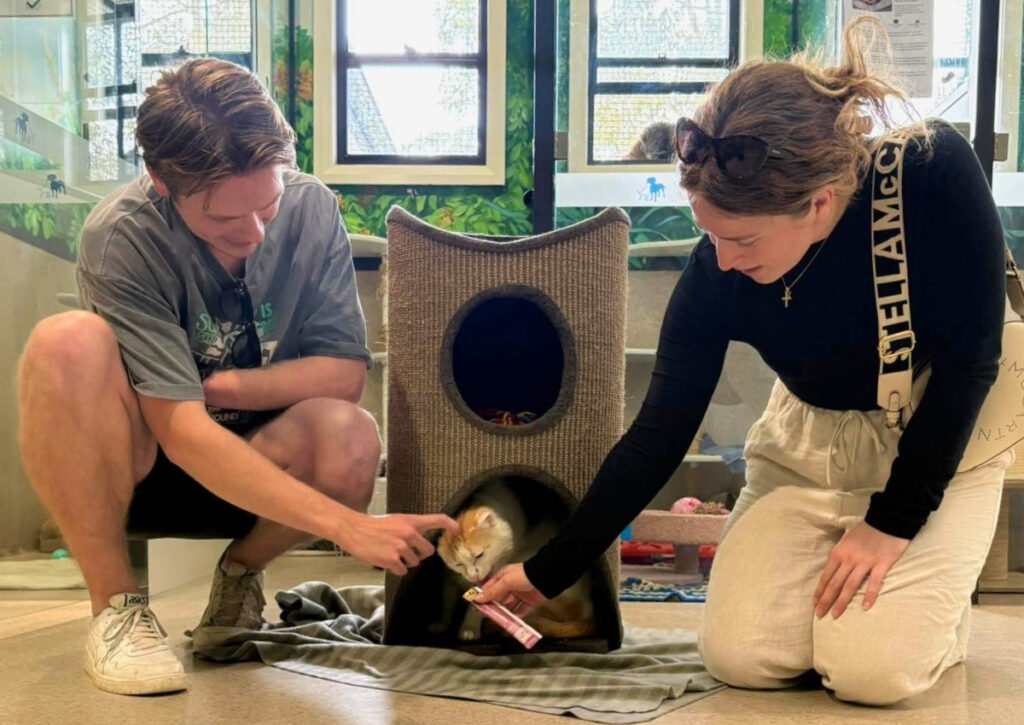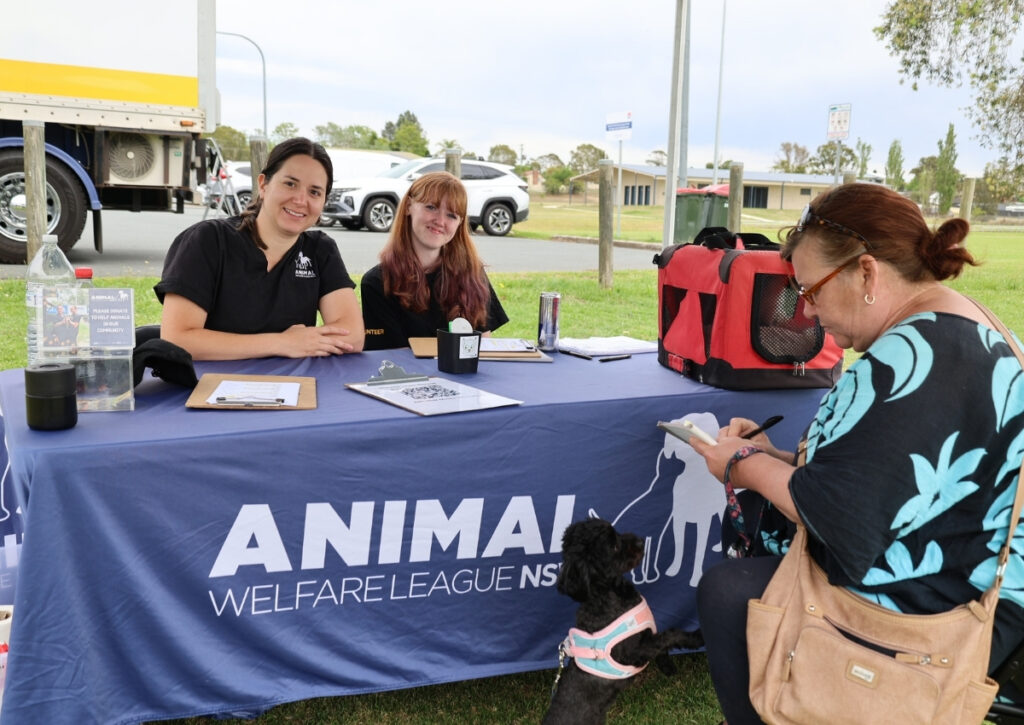All dogs have natural behaviours that can sometimes clash with our human lifestyles. The key to managing them is understanding why they happen and teaching your dog what to do instead, without punishment.
Jumping Up
Why it happens:
Dogs jump to say hello, ask for attention, or express excitement. Even pushing them off or saying “no” gives them the attention they crave – so it accidentally rewards the behaviour.
What to do:
- Only give attention when your dog has all four paws on the ground, or better, is sitting.
- If they jump up, turn away, fold your arms, and ignore them. No eye contact, no talking.
- The moment they sit or settle—praise and reward.
- Be consistent! Ask visitors to do the same.
- Use a treat or toy to lure them into a sit as you enter the house if they usually jump when you arrive.
- Make sitting the default behaviour – before meals, toys, pats, or going outside. Sitting is an “incompatible behaviour”, a dog can’t sit and jump at the same time!
Digging
Why it happens:
Dogs dig out of boredom, for fun, to stay cool, or even to bury things.
What to do:
- Make sure your dog is physically exercised and mentally stimulated every day.
- If digging is persistent, provide a designated digging spot (like a sandbox or unused garden bed). Encourage digging in the approved area by burying treats or toys there. Remember that this will be positively reinforcing digging which will result in more digging so only use this if you are happy for the dog to dig.
- Provide your dog with puzzle feeders or Kongs to keep them busy, so that your dog isn’t digging our of boredom.
- Supervise yard time and interrupt digging in unwanted areas with redirection to toys or games.
- Filling holes with dog poop may deter re-digging.
Chewing
Why it happens:
Chewing helps with teething, relieves stress, and combats boredom.
What to do:
- Give your dog a variety of appropriate chew items (e.g. rubber toys, dental chews, Kongs).
- Keep valuables and “forbidden” items out of reach.
- If your dog grabs something off-limits, calmly ask them to trade for a chew toy or treat.
- Don’t yell or chase them – it turns into a game or causes confusion.
Pro tip: Rotate toys weekly to keep them exciting.
Mouthing & Biting
Why it happens:
Young dogs explore the world with their mouths, especially during play.
What to do:
- Allow gentle mouthing, but if your dog bites too hard, say “Ouch!” and pause play for 5–10 seconds.
- Offer a toy to redirect their chewing.
- If the biting continues, walk away for a short time-out.
- Keep play calm and structured. Avoid rough games if they get over-excited easily.
- Return to play only when your dog is calm—not barking or jumping.
Important: If biting seems aggressive or intense, consult a trainer or behaviorist.
Destructive Behaviour (Chewing Furniture, Digging, etc.)
Why it happens:
Often caused by boredom, stress, lack of exercise, or separation anxiety.
What to do:
- Make sure your dog gets daily walks, training sessions, and interactive play.
- Use enrichment toys like puzzle feeders, snuffle mats, or frozen Kongs.
- Provide a safe, comfy space with stimulating activities when left alone.
- Avoid leaving dogs outside unsupervised if they get destructive in the yard.
Stealing (Shoes, Toys, Laundry, etc.)
Why it happens:
Your dog might be bored, seeking attention, or just having fun with interesting objects, especially if they have your scent.
What to do:
- Avoid reacting – chasing, scolding, or yelling turns it into a fun game.
- Don’t try to grab the object. Instead, distract with a toy, game, or treat.
- When they drop the stolen item and engage with you, reward heavily.
- Quietly remove the object once your dog is distracted elsewhere.
- Keep tempting items (like shoes or laundry) out of reach.
- Rotate your dog’s toys so they don’t get bored.
Never give your dog old shoes or clothes to play with, it teaches them that all shoes are fair game!
The Golden Rule: Teach What You DO Want
It’s easy to say “No!” but dogs learn faster when you show them what to do instead.
- Redirect unwanted behaviour
- Reward the good stuff generously
- Be patient and consistent
With positive reinforcement and clear boundaries, your dog will gain confidence and your bond will grow stronger.



